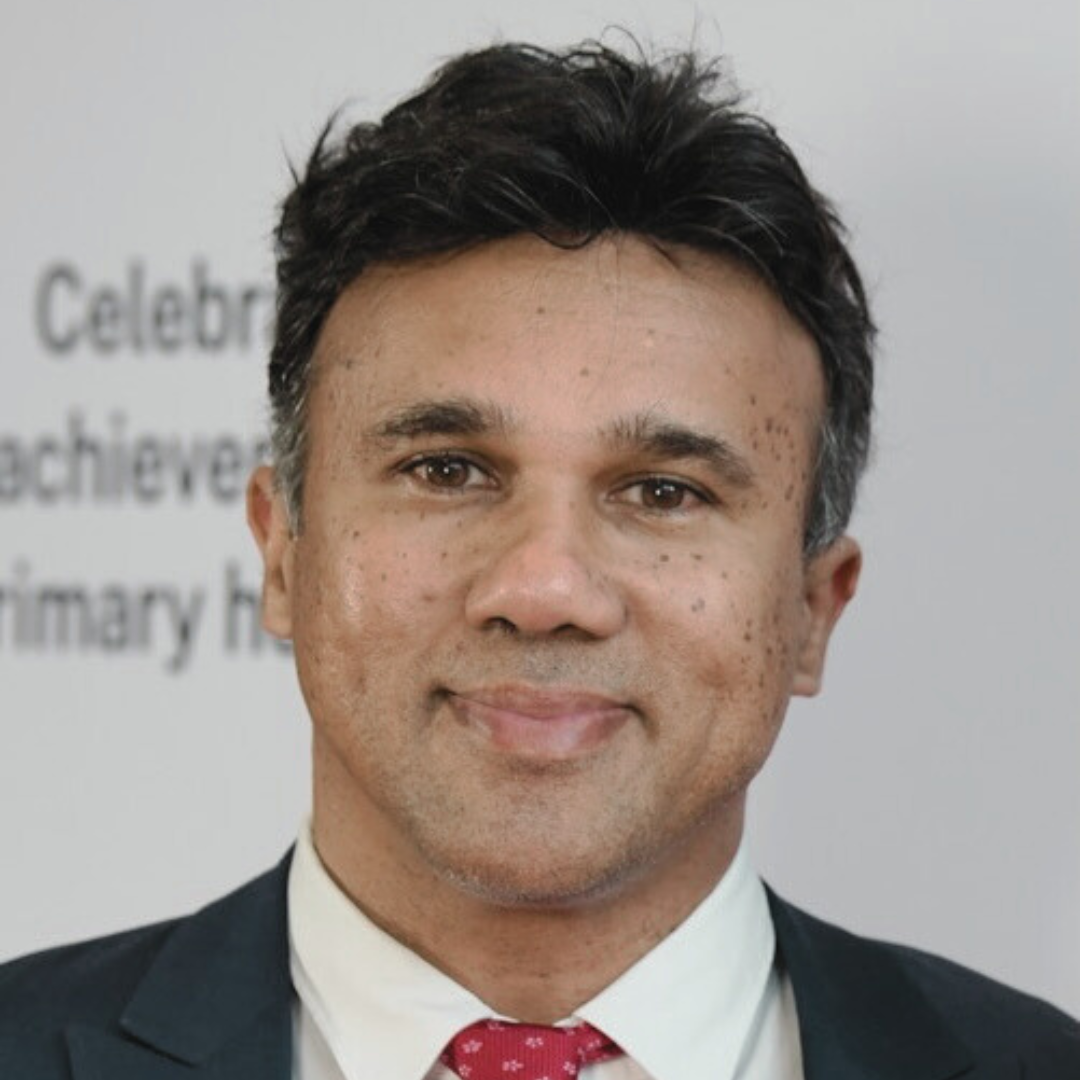
Name: Senthu Jegadheesan
Title: Chief Technology Officer
Company: PenCS
Commenced role: December 2020
Reporting line: Chief Executive Officer
Member of the executive team: Yes
Technology Function: 30 staff, six direct reports
PenCS is a leading Australian-owned health informatics company with a 30-year history of improving healthcare outcomes across the country. Owned and operated by doctors, PenCS aims to help its partners to harness the full potential of their data, fostering operational efficiency, informed decision-making, and better healthcare outcomes.
Under the leadership of chief technology officer Senthu Jegadheesan, PenCS has undergone a transformative period of technology innovation over the past two years. One of the most significant projects led by Jegadheesan was the development and deployment of the Risk of Hospitalisation Module, a cutting-edge feature in PenCS’ custom data analytics platform.
This module uses a predictive risk algorithm developed by CSIRO, re-engineered by PenCS for ease of use, to identify patients at risk of hospitalisation within the next 12 months.
The module’s low-code/no-code interface allows healthcare providers to create custom reports and dashboards using drag-and-drop filters, providing actionable insights through enriched datasets. The system integrates with multiple patient management systems, offering comprehensive, up-to-date information that healthcare providers can use to improve patient outcomes and reduce unnecessary hospital admissions.
Reducing preventable hospital admissions
The Risk of Hospitalisation Module has had a significant impact across the healthcare sector:
– Reach: The module is accessible to over 3,800 general practices, covering more than 65 percent of Australia geographically.
– Results: The module has helped reduce preventable hospital admissions, saving the healthcare system an estimated $320 million annually.
– Widespread Use: Over 45,000 healthcare professionals, including 38,000 doctors, actively use the platform.
– Policy Support: This module has been implemented at a population health level, including Primary Health Networks and state and national government, who leverage the tool to inform policy, preventive health initiatives, and strategic healthcare planning, including the rollout of Medicare Urgent Care Clinics (UCC) and NSW Urgent Care Services (UCS).
Staff engagement and development
PenCS’ innovations have led to higher staff morale and engagement, with a 90 per cent retention rate over the past two years. Jegadheesan says the organisation is committed to providing professional development opportunities, mentoring, and creating a culture of open communication.
Under Jegadheesan’s leadership, PenCS has fostered an inclusive workplace, with over 50 per cent of female staff members and representation from more than 15 nationalities across five countries.
The company is committed to ensuring diversity and promoting a work culture that values every employee’s contribution. Flexible working arrangements and open communication forums contribute to high staff satisfaction and collaboration.
Leadership and Collaboration
Jegadheesan’s ability to build strong relationships within and outside of PenCS has helped secure support from C-level executives and fostering collaboration with key stakeholders, such as the CSIRO, which is exploring future versions of the predictive risk algorithm with PenCS.
PenCS Chief Executive Officer Edweana Wenkart paid tribute to Jegadheesan as “an influential leader who has made a significant contribution to PenCS, strengthening our technology platform and setting the business up for success while ensuring compliance with international standards. His leadership was instrumental in developing our Risk of Hospitalisation AI Module, which has garnered significant interest from the healthcare community. Senthu’s commitment to team development and fostering an inclusive culture has led to the delivery of our health informatics platform to over 60 per cent of Australia’s medical practices and 100 per cent of Urgent Care Clinics.”
He has also been proactive in communicating the importance of cybersecurity investments, ensuring PenCS became ISO27001:2022 compliant.
Building on their success, the team is now working on proof-of-concepts in clinical decision support and medical data mapping.
Title: Chief Technology Officer
Company: PenCS
Commenced role: December 2020
Reporting line: Chief Executive Officer
Member of the executive team: Yes
Technology Function: 30 staff, six direct reports
PenCS is a leading Australian-owned health informatics company with a 30-year history of improving healthcare outcomes across the country. Owned and operated by doctors, PenCS aims to help its partners to harness the full potential of their data, fostering operational efficiency, informed decision-making, and better healthcare outcomes.
Under the leadership of chief technology officer Senthu Jegadheesan, PenCS has undergone a transformative period of technology innovation over the past two years. One of the most significant projects led by Jegadheesan was the development and deployment of the Risk of Hospitalisation Module, a cutting-edge feature in PenCS’ custom data analytics platform.
This module uses a predictive risk algorithm developed by CSIRO, re-engineered by PenCS for ease of use, to identify patients at risk of hospitalisation within the next 12 months.
The module’s low-code/no-code interface allows healthcare providers to create custom reports and dashboards using drag-and-drop filters, providing actionable insights through enriched datasets. The system integrates with multiple patient management systems, offering comprehensive, up-to-date information that healthcare providers can use to improve patient outcomes and reduce unnecessary hospital admissions.
Reducing preventable hospital admissions
The Risk of Hospitalisation Module has had a significant impact across the healthcare sector:
– Reach: The module is accessible to over 3,800 general practices, covering more than 65 percent of Australia geographically.
– Results: The module has helped reduce preventable hospital admissions, saving the healthcare system an estimated $320 million annually.
– Widespread Use: Over 45,000 healthcare professionals, including 38,000 doctors, actively use the platform.
– Policy Support: This module has been implemented at a population health level, including Primary Health Networks and state and national government, who leverage the tool to inform policy, preventive health initiatives, and strategic healthcare planning, including the rollout of Medicare Urgent Care Clinics (UCC) and NSW Urgent Care Services (UCS).
Staff engagement and development
PenCS’ innovations have led to higher staff morale and engagement, with a 90 per cent retention rate over the past two years. Jegadheesan says the organisation is committed to providing professional development opportunities, mentoring, and creating a culture of open communication.
Under Jegadheesan’s leadership, PenCS has fostered an inclusive workplace, with over 50 per cent of female staff members and representation from more than 15 nationalities across five countries.
The company is committed to ensuring diversity and promoting a work culture that values every employee’s contribution. Flexible working arrangements and open communication forums contribute to high staff satisfaction and collaboration.
Leadership and Collaboration
Jegadheesan’s ability to build strong relationships within and outside of PenCS has helped secure support from C-level executives and fostering collaboration with key stakeholders, such as the CSIRO, which is exploring future versions of the predictive risk algorithm with PenCS.
PenCS Chief Executive Officer Edweana Wenkart paid tribute to Jegadheesan as “an influential leader who has made a significant contribution to PenCS, strengthening our technology platform and setting the business up for success while ensuring compliance with international standards. His leadership was instrumental in developing our Risk of Hospitalisation AI Module, which has garnered significant interest from the healthcare community. Senthu’s commitment to team development and fostering an inclusive culture has led to the delivery of our health informatics platform to over 60 per cent of Australia’s medical practices and 100 per cent of Urgent Care Clinics.”
He has also been proactive in communicating the importance of cybersecurity investments, ensuring PenCS became ISO27001:2022 compliant.
Building on their success, the team is now working on proof-of-concepts in clinical decision support and medical data mapping.








